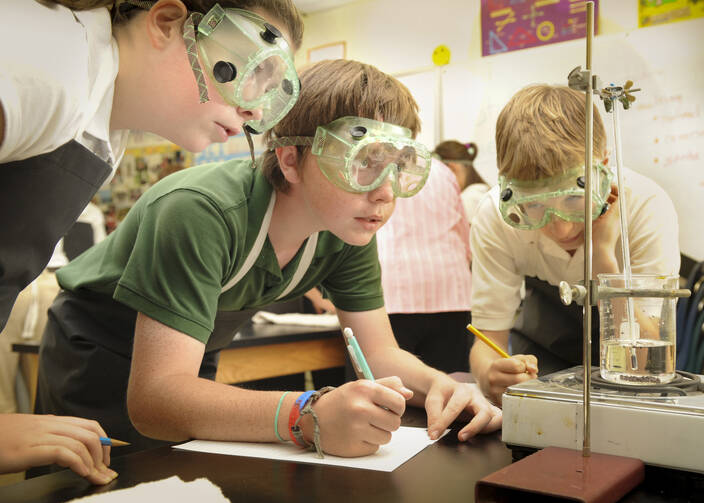Ian Barbour, the great scholar of science and religion, died on December 24, 2013. He was 90. The Jan. 12, 2014 New York Times contained a brief overview of his life and work, sketching out some of the reasons for the immensity of his influence and the significance of his work.
His first book, "Issues in Science and Religion," was published in 1966, and for many people struggling to reconcile faith and science, it became something of a bible itself."It really transformed my life," said Robert John Russell, who read the book when he was an undergraduate majoring in physics at Stanford . . . . "Ian was the pioneer scholar who got us out of the quicksand of either seeing science and religion as totally in conflict or totally irrelevant to each other," Dr. Russell said.
As the Times notes, Barbour outlined four basic "options" with respect to the relationship between science and religion. As he characterized them in his book Religion and Science: Historical and Contemporary Issues, they are: (1) conflict (science and religion are at war, cf. Galileo's case); (2) independence (religion and science "are totally independent and autonomous"); (3) dialogue (there are points of contact and correlations); and (4) integration ("some sort of integration is possible between the content of theology and the content of science").
I am a big fan of Barbour and, like many others, grateful for his contributions. In a class I teach called Senior Synthesis, I assign portions of Religion and Science when we begin to talk about the relationship between faith and reason, and when I introduce students to the ways that modern science helps support the belief in a creator. On that point, chapter 8 of his book ("Astronomy and Creation") is superb. He provides an overview of the anthropic principle that students find accessible and fascinating, particularly his articulation of what scientists know as the "expansion rate," which leaves students wowed. Barbour:
Stephen Hawking writes, "If the rate of expansion one second after the Big Bang had been smaller by even one part in a hundred thousand million million it would have recollapsed before it reached its present size. On the other hand, if it had been greater by a part in a million, the universe would have expanded too rapidly for stars and planets to form. The expansion rate itself depends on many factors, such as the initial explosive energy, the mass of the universe, and the strength of gravitational forces. The cosmos seems to be balanced on a knife edge.
How, I ask my students, do you explain that? How do you grapple with how unlikely not only our existence is, but the existence of the universe? This eventually leads us to the question that is really the threshold inquiry underpinning everything: Why is there something rather than nothing? I love the silence that precedes their reply.
R.I.P., Ian Barbour.








